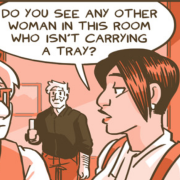|
Alterian posted:I'm in NC and we just had two hurricanes and beat our yearly rainfall record so I don't know if that could of had an effect on it getting messed up? Definitely. If you buy the place, you should check every couple months, or whatever the local health department recommends, in addition to checking after heavy rains.
|
|
|
|

|
| # ? May 16, 2024 21:20 |
|
Also be advised, some locales require you to have a contract in place for yearly septic inspections.
|
|
|
|
|
i purchased a house in april 2018 that has a toilet [wall ] utility sink for washer and dryer set up in the basement. am i able to install a small wall mounted sink to the [wall] and drain the hand basin to the utility sink drain? the utility drain is about 4 feet away from a main soil stack.
|
|
|
|
Do I need a license to buy Clobber, or will a supply house sell it to me? I've been doing new construction plumbing for years but I'm not licensed, I know the dangers of sulfuric acid and all that. I'm out of town and trying to help a friend out.
|
|
|
|
Pookum posted:Do I need a license to buy Clobber, or will a supply house sell it to me? I don't know about liquid sulfuric acid, but I haven't had trouble finding lye-based granulated powder stuff outside of my work channels.
|
|
|
|
Problem: I have something odd going on with my water pressure after replacing my old water heater. Ever since the new water heater was installed, I've noticed that if I don't run any water in my house, (for a period of several hours) my static water pressure creeps up to over 80 psi. (Which is generally agreed to be higher than is good for plumbing and appliances.) Background information and details: 17 year old house, never had issues with high water pressure before. If anything, my pressure tended to be lower than I would have liked. About 2 years ago, the city said my supply pressure (upstream of my pressure control valve) was 62 psi. At that time I adjusted the pressure control valve to get the house water pressure (measured at a hose bib closest to the supply line) up to about 55 psi. I have a water pressure gauge, so I check it occasionally just to make sure nothing strange is happening. Since then everything has seemed fine until... I just had the original 40 gal water heater (gas fired) replaced with a generally similar model. The new installation has an expansion tank, which I didn't have before. Anyway, after the new WH was installed, I notice my water pressure (cold or hot) seemed higher than before as water would initially rush out of a faucet with more force, then calm down after 10 seconds or so. The water heater is set to 130F (setting A) and seems to be operating normally. I verified the water temperature is about 125 F at the nearest faucet. As I said, the static pressure is creeping up to 80-85 psi. If I run the faucet a few seconds to release the initial burst, and take another reading, it will be about 60 psi. 60 psi seems to be the "baseline" that it returns to if any water is used, releasing the pent-up pressure. But as I said, if I don't run any water at all in the house, it slowly creeps back up to 80+. Even if I don't use any hot water beforehand, which would seem to rule out a thermal expansion issue (i.e. all the water in the tank is just staying hot, so there should be minimal thermal expansion if I'm not heating up fresh cold water.) Thoughts? I don't think my supply pressure is high enough to do this, especially with a pressure control valve. Even if the control valve is busted, I don't see how it could make the house pressure higher than the city supply pressure. On the other hand it doesn't seem to be thermal expansion because as I said, the pressure creeps up even when i'm not really using/heating any water. Can the expansion tank be borked in some way, that's actually increasing the pressure? Like if it was grossly overcharged or undercharged (air pressure)?
|
|
|
|
Was the relief valve on your old water heater constantly leaking?
|
|
|
|
|
Try turning off the water heater, using water, then monitoring it to see if it continues to creep up without the water heater firing up. It sounds like it's thermal expansion and that your expansion tank is pressurized too much, or somehow otherwise not working like it should. Your test is flawed in that even if you only use cold water, the hot water lines are still able to relieve pressure by back flowing hot water from the tank up into your cold water lines. It's not enough to make it to any faucet though which is why you don't notice it.
|
|
|
|
To me, it sounds like the expansion tank is bad. I would leave a faucet dripping slightly until you get it figured out. But it could just be that street pressure is higher than you were told, and the PCV is bad.
|
|
|
|
Okay Goons, I just got a new house and have a question. I am used to houses on the East coast with a meter in the basement and a main water shutoff right next to it, generally right by the electrical utilities. The house I bought is on the west coast and it's a 50's rambler. I have been doing small plumbing jobs (replacing toilet flushers, faucets, etc.) and can use the local shutoffs, but there are some jobs like the taps to my washing machine and water heater that I'd need to shut the house water off for. Originally, I had thought this valve was for the sprinkler system put in by the PO (and lord was it wired badly, in the spring I'm going to create some utility pits for the wired portions).  It is located immediately to the right of the utility vault for the filthy outdoor water meter:  Now here's the mystery; if I'm right that the green valve is for the sprinkler system (and I won't touch it because the system is winterized), where the hell is the main water cutoff? My utility room with the washer, dryer, water heater, etc was finished at some time but I see no access panels put in for shutoffs, and I suspect that they may have been dumb enough to drywall over it at some time; any tips for isolating where the shutoff might be?
|
|
|
|
In the second picture, below the meter looks like a gas style shutoff. People use those sometimes instead of a normal hand tightened gate shutoff. E looks like this: https://goo.gl/images/X4roUz
|
|
|
|
The Gardenator posted:In the second picture, below the meter looks like a gas style shutoff. People use those sometimes instead of a normal hand tightened gate shutoff. You might be right, but it's on the city's side of that meter, I'm pretty sure. It'd be weird if there wasn't a more convenient main shutoff; I'd have to reach through a 4x6" rusty hatch to open or close it.
|
|
|
|
That's all a lot of people have, and use. They do make a tool so you don't have to reach down in there. I would find where it enters the building, and add a shut off at a more convenient location.
|
|
|
|
angryrobots posted:That's all a lot of people have, and use. They do make a tool so you don't have to reach down in there. I would find where it enters the building, and add a shut off at a more convenient location. I had no idea that was common. Maybe 1950s construction was just decidedly lazier about such things than the old 1920s/30s houses I had lived in before. Thanks for pointing out that tool.
|
|
|
|
My 1950 house has a main water shut-off on an outside wall of the house near the street shutoff, but it was buried under 2 feet of dirt and rusted shut. Yours is probably in a similar condition assuming it exists. I had a new valve installed when the plumbing was replaced so now I can turn it off at the house but prior to that I had to turn it off at the street and it wasn't too bad.
|
|
|
|
Just remember that in many/most areas, that curb water shutoff is property of the water company. They would prefer that they were the ones shutting it off and not the homeowner. If you break it, you'll likely be paying some crazy fees to them to fix it and for any water you've now wasted, not to mention any other destruction of property caused by a flood or fines for touching WaterCo property. You really want a shutoff that you own near where the water enters your house.
|
|
|
|
B-Nasty posted:Just remember that in many/most areas, that curb water shutoff is property of the water company. They would prefer that they were the ones shutting it off and not the homeowner. If you break it, you'll likely be paying some crazy fees to them to fix it and for any water you've now wasted, not to mention any other destruction of property caused by a flood or fines for touching WaterCo property. I agree, plus what I thought was the tool to turn off water to the sprinklers (as it was labeled) I think is the key for the main based on its shape. How much would it cost to get a new cutoff installed?
|
|
|
|
Depends on what the condition of your pipes are and how hard they are to get to, but I would imagine pretty expensive. My plumber did it as part of an almost whole house replumb which was over three grand
|
|
|
|
SpartanIvy posted:Depends on what the condition of your pipes are and how hard they are to get to, but I would imagine pretty expensive. My plumber did it as part of an almost whole house replumb which was over three grand Well the washing machine's two taps are ancient, but if I cut a hole behind there and the water heater it's next to in my utility room, presumably I'd expose the main and can get a shutoff installed there? The reason I came here was because I want to replace those taps before they begin leaking.
|
|
|
|
Makes sense to me but I'd be concerned on the condition of the threads of the pipe if it's ancient. That was a very real concern for me because my old pipes (1950 galvanized steel) had become paper thin in places. Luckily the main water pipe looked good, but if it had broken when trying to unthread the old pipes/valves, I would have had to paid for a new pipe from the meter on the street to the house which I think I was quoted as being another thousand with digging and such. So I guess what I'm saying is it just all depends, and you'll need to get a real plumber in there to check it out. E: I've also discovered that it's a much better deal to bundle everything you want done into one list and get it all done at once. So if you want any other plumbing work done, get it all quoted together. SpartanIvy fucked around with this message at 22:53 on Jan 22, 2019 |
|
|
|
SpartanIvy posted:Makes sense to me but I'd be concerned on the condition of the threads of the pipe if it's ancient. That was a very real concern for me because my old pipes (1950 galvanized steel) had become paper thin in places. Luckily the main water pipe looked good, but if it had broken when trying to unthread the old pipes/valves, I would have had to paid for a new pipe from the meter on the street to the house which I think I was quoted as being another thousand with digging and such. That's for sure. Honestly right now I am of the attitude of leaving things alone if it still works. The only "major" change I've made is adding an arrestor to the dishwasher line because I heard some knocking.
|
|
|
|
angryrobots posted:That's all a lot of people have, and use. They do make a tool so you don't have to reach down in there. I would find where it enters the building, and add a shut off at a more convenient location. My neighbor & his buddy welded one up out of rebar & some bracketing they had lying around. I've used it, and it's awesome. The only shutoff I own is just inside the basement foundation wall. I changed it from a (leaking) gate to a ball valve. The curb shutoff was the township's responsibility, all right. I called them out, claiming I had a leak at the main (or under the front yard); they were able to free up the valve, but it took them over an hour of effort. I waited about a week to change out my shutoff. Street valve was sooth as silk.
|
|
|
|
I have a weird frozen pipe mystery in my newly purchased 1864 house in New England. Was away this weekend and turned the thermostat down and it ended up getting into the single digits. When I got home I noticed both the sink (hot and cold) and the toilet in a second floor bathroom didn't work. Now here is the weird part: this bathroom is on the interior of the house. The shower in this bathroom worked fine, both the hot and cold, and the entire bathroom gets its water from a single run up from the basement. The shower drain was also totally clogged which I am going to take as the trap being frozen since it drains perfectly now that everything is warmed up. The fact that the two supply pipes from the basement are among the only ones in the house to have their own shutoff valves (the others are for the external spigots) suggests to me this has happened before. But how is enough cold air getting into the middle of my house to freeze through a tub trap and 1/2" copper pipes? The only thing I can think of is that I somehow have a gaping hole on the side of my house letting cold air in between the second floor floor joists, creating a tunnel of coldness right to the bathroom plumbing. The joists run the right way for that theory, but its still crazy to me that this happened but nothing else froze, including the 3/4" copper supply that runs up 8 feet of a brick exterior wall with zero insulation.
|
|
|
|
Your house probably has a common vertical run of pipes that are not well insulated.
|
|
|
|
mcgreenvegtables posted:I have a weird frozen pipe mystery in my newly purchased 1864 house in New England. Was away this weekend and turned the thermostat down and it ended up getting into the single digits. When I got home I noticed both the sink (hot and cold) and the toilet in a second floor bathroom didn't work... You should have a soil vent stack that runs from the roof down to the basement. Soil stack runs are notoriously breezy & cold as hell especially in older structures. I imagine you have risers (supply lines) sharing this chase with your soil pipe.
|
|
|
|
PainterofCrap posted:You should have a soil vent stack that runs from the roof down to the basement. Soil stack runs are notoriously breezy & cold as hell especially in older structures. I imagine you have risers (supply lines) sharing this chase with your soil pipe. The vertical run from the basement is shared by the risers and a 3" pvc sewage pipe. The stack up to the roof is smaller (1.5 or 2", can't tell) and I can actually see it in the closet of another bedroom on the second floor rising up to the roof, where its stuffed with a bunch of fiberglass insulation. But that area doesn't seem cold and is also sealed off by framing from the area under the floor where presumably rises branch off and the 3" reduces. Also the shower still functioned and is much closer to the chase than the toilet and the sink. That said, the house has a flat roof with about 1 foot of inaccessible attic, and I have no idea if that is insulated at all or not. The second floor of the house is oddly much colder than the first floor, which I think is a combination of poor radiator placement (there are only 2 upstairs and like 11 downstairs) and poor insulation of the roof. If the roof is really not insulated, I presume any interior second floor wall cavity is fair game for being super cold and explaining the frozen pipes?
|
|
|
|
B-Nasty posted:Just remember that in many/most areas, that curb water shutoff is property of the water company. They would prefer that they were the ones shutting it off and not the homeowner. If you break it, you'll likely be paying some crazy fees to them to fix it and for any water you've now wasted, not to mention any other destruction of property caused by a flood or fines for touching WaterCo property. We won't touch a curb stop. Our meters are located in the basement here, but there are so many decrepit gate valves many times there is no other option but go to the main. We get the city involved at that point.
|
|
|
|
BubbaGrace posted:so many decrepit gate valves I will say that I am personal amazed at how often curb stops work given how sporadically they are actually used. It is kind of amazing really.
|
|
|
|
Amoxicilina posted:"Lament of the Plumber" They only need to get the flow low enough to replace the main valve inside really.
|
|
|
|
kid sinister posted:They only need to get the flow low enough to replace the main valve inside really. Yep. We are required to use FIP valves at the meter, so a trickle or slow stream is not a problem.
|
|
|
|
I am just venting about my plumbing This is the third time I have had a leak in the wall in this house. House was built in 74 and they just stressed the pipes through the studs to fit the joints. This one sprung a leak at the joint where it doesn't even look like there was solder but on one spot.  2 joint leaks 1 pipe stress fractured 2 times floors flooded needing replacement All in the same wall but different places. I feel like I am slowly replacing all the old copper piping at $500 a foot (not including new floors/drywall). When I asked I was told it would cost about $2500 to rip the entire wall open and replace it all at once with PEX, which is starting to sound like a hell of a deal 
|
|
|
|
B-Nasty posted:Just remember that in many/most areas, that curb water shutoff is property of the water company. They would prefer that they were the ones shutting it off and not the homeowner. If you break it, you'll likely be paying some crazy fees to them to fix it and for any water you've now wasted, not to mention any other destruction of property caused by a flood or fines for touching WaterCo property. The first time a joint had a leak (but after the pipe burst about 6 months earlier) I was broke and couldn't afford to fix it properly so I would walk out to the curb every morning to turn the water on, take a shower and poo poo then turn it back off when I left for work. Did that for about a month till I could afford to fix the leak.
|
|
|
|
JEEVES420 posted:green poo poo Someone didn't properly wipe down the joints after soldering. Lazy bastards.
|
|
|
|
BubbaGrace posted:Someone didn't properly wipe down the joints after soldering. Lazy bastards. Yup. Shine your pipework, dammit. I see this in claims. Pipe up in a ceiling or deep in a wall is leaking, and it's a complete mystery since it's not in a stress or other leak area, and the leak itself isn't on the joint, proper. I'm not sure if the plumbers who troubleshoot such jobs before I get there claim puzzlement out of genuine ignorance, or professional embarrassment (hint: unless they're over 55, it's usually the former). The crazy ones are when it's in the middle of a run, nowhere near a joint. Lost count of the number of times I've explained that flux just gets on hands and then is transferred to the pipe as it's handled, then spends the next 30-years eating away. On the other hand, sometimes it's defective copper pipe, or some weird groundwater chemistry that just eats the pipes; those are fun, because the house will spring leaks everywhere. Levitt homes, which were built with radiant heat in the slab, used an incredibly thick-walled copper pipe for the heating circuit. That meant that it took fifty years for the lime in the concrete to eat through it, though, rather than thirty. Those were messy.
|
|
|
|
I preemptively replaced this....mess when I moved in. Don't have a reducing tee? Just make one! And use ALL of your solder!
|
|
|
|
You can always tell when a (sometimes newbie) HVAC guy does plumbing, they never wipe the joints, whereas a plumber always has a damp rag around for one reason or another.
|
|
|
|
Is there such a thing as 7/8" MIP to 3/8" MIP union? Where might I find one? I'm trying to hook up water lines on a new faucet, but struck out at Home Depot. In my mind it would look something like this, but it would be the right threading of course. Pictures of what I'm trying to connect are below (sorry about the virus crap). If there's a better way to accomplish this, please steer me in that direction.   nitsuga fucked around with this message at 03:26 on Jan 29, 2019 |
|
|
|
That second link triggered a virus alert. Can you post a photo?
|
|
|
|
nitsuga posted:Is there such a thing as 7/8" MIP to 3/8" MIP union? Where might I find one? I'm trying to hook up water lines on a new faucet, but struck out at Home Depot. In my mind it would look something like this, but it would be the right threading of course. You need these and most likely in 3/8 x 1/2. The 1/2 is much larger than the 3/8 because it is pipe thread and the 3/8 is compression thread. https://m.ferguson.com/product/proflo-od-compression-x-mip-brass-compression-adapter-pfxmcucn/_/A-ProdFamily-175255
|
|
|
|

|
| # ? May 16, 2024 21:20 |
|
Isn't that just a standard toilet tank hose? That looks to be about the diameters of mine. One of these guys: https://www.amazon.com/Fluidmaster-...rds=toilet+hose
|
|
|



























